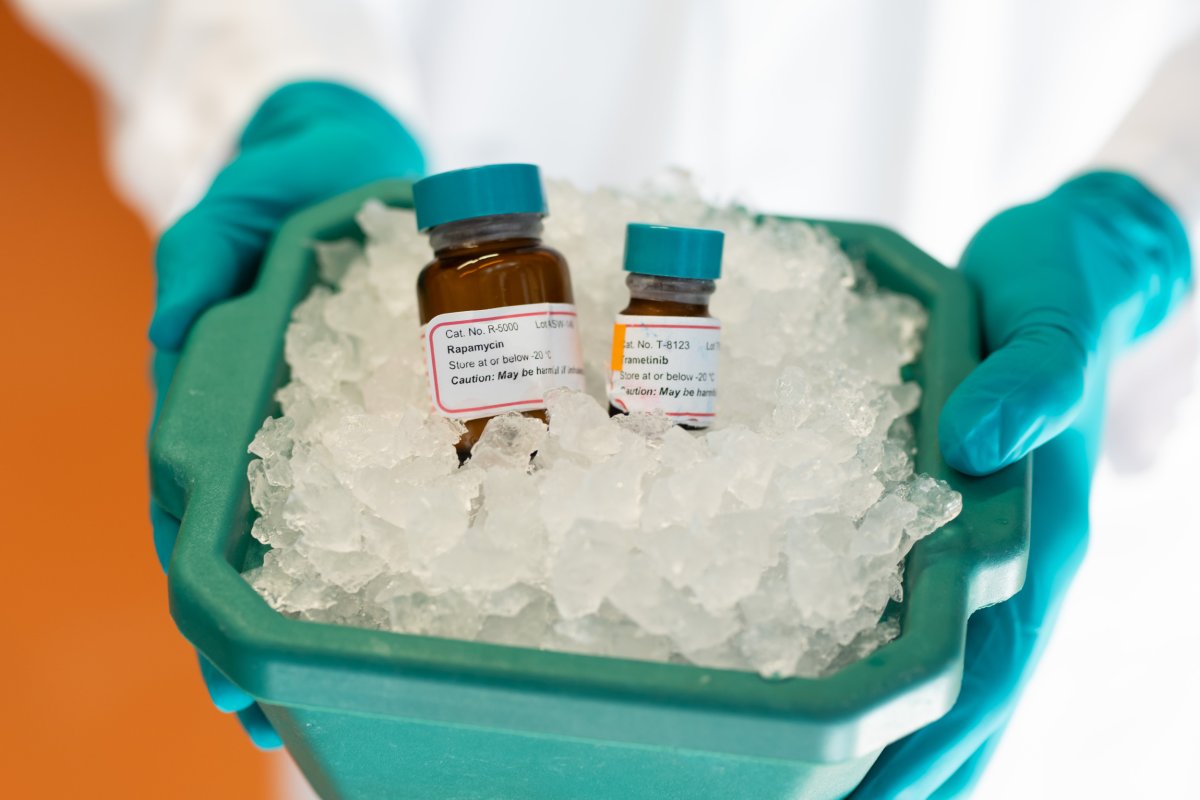By
Ian Randall is Newsweek‘s Deputy Science Editor, based in Royston, U.K., from where he covers everything science and health with a particular focus on astronomy, astrophysics and cosmology. Ian’s writing has appeared in leading science outlets including Science, Astronomy Now and Physics World. See here for more of Ian’s work. He joined Newsweek in 2023 from the Daily Express U.S. and previously worked at Express.co.uk and MailOnline. Ian read Geology at the University of Oxford and Science Journalism at City University London. You can get in touch with Ian by emailing i.randall@newsweek.com.
Ian Randall
Deputy Science Editor
🎙️ Voice is AI-generated. Inconsistencies may occur.
Combining two cancer drugs has been found to prolong the lifespan of mice—and may help humans age better.
An international team of researchers analyzed the impact of rapamycin and trametinib on rodents, showing that the pair extended the animals’ lifespan by around 30 percent.
The combination therapy was also found to improve the mice’s health in older age, reducing the extent of chronic inflammation in the brain and other tissues and slowing cancer onset.
“We do not expect a similar extension to human lifespans as we found in mice,” said paper author and geneticist professor Dame Linda Partridge of University College London in a statement.
However, she added, “we hope that the drugs we’re investigating could help people to stay healthy and disease-free for longer late in life.”

K. Link / Max Planck Institute for Biology of Ageing
Both rapamycin and trametinib are drugs used to treat cancer that act on different points in the so-called Ras/Insulin/TOR signaling pathway that regulates cell growth, metabolism and lifespan.
For animals, rapamycin is an established and potent “geroprotector,” a type of drug that slows down the aging process and, as a result, can increase lifespan.
Previous studies on flies have suggested that trametinib may also work as a geroprotector in mice—although this study is the first to demonstrate this effect.
In their new study, the team found that the combination of the two drugs is more effective than either on their own, even though the two act on the same pathway.
(Specifically, trametinib alone was found to increase the lifespan of mice by 5–10 percent and rapamycin alone by 15–20 percent.)
The researchers say that the combination produces novel effects on gene activity—going beyond those expected from just the increased dosage
With their initial study complete, the researchers are now working to establish the optimum dose of trametinib for prolonging life while keeping unwanted side effects to a minimum.
Trametinib, the team note, has already been approved for use in humans, making it possible to assess its geroprotector potential in humans in clinical trials.
“Trametinib, especially in combination with rapamycin, is a good candidate to be tested in clinical trials as a geroprotector,” said paper author and biologist Sebastian Grönke of the Max Planck Institute for Biology of Ageing in Cologne, Germany, in a statement.
“We hope that our results will be taken up by others and tested in humans. Our focus is on optimizing the use of trametinib in animal models.”
Partridge concluded: “Further research in humans in years to come will help us to elucidate how these drugs may be useful to people and who might be able to benefit.”
Do you have a tip on a health story that Newsweek should be covering? Do you have a question about aging? Let us know via health@newsweek.com.
Reference
Gkioni, L., Nespital, T., Baghdadi, M., Monzó, C., Bali, J., Nassr, T., Cremer, A. L., Beyer, A., Deelen, J., Backes, H., Grönke, S., & Partridge, L. (2025). The geroprotectors trametinib and rapamycin combine additively to extend mouse healthspan and lifespan. Nature Aging. https://doi.org/10.1038/s43587-025-00876-4
Is This Article Trustworthy?
![]()
Newsweek is committed to journalism that is factual and fair
We value your input and encourage you to rate this article.
Newsweek is committed to journalism that is factual and fair
We value your input and encourage you to rate this article.
Slide Circle to Vote
No
Moderately
Yes
VOTE
Top stories
About the writer
Ian Randall is Newsweek‘s Deputy Science Editor, based in Royston, U.K., from where he covers everything science and health with a particular focus on astronomy, astrophysics and cosmology. Ian’s writing has appeared in leading science outlets including Science, Astronomy Now and Physics World. See here for more of Ian’s work. He joined Newsweek in 2023 from the Daily Express U.S. and previously worked at Express.co.uk and MailOnline. Ian read Geology at the University of Oxford and Science Journalism at City University London. You can get in touch with Ian by emailing i.randall@newsweek.com.
Ian Randall
Ian Randall is Newsweek‘s Deputy Science Editor, based in Royston, U.K., from where he covers everything science and health with …
Read more











